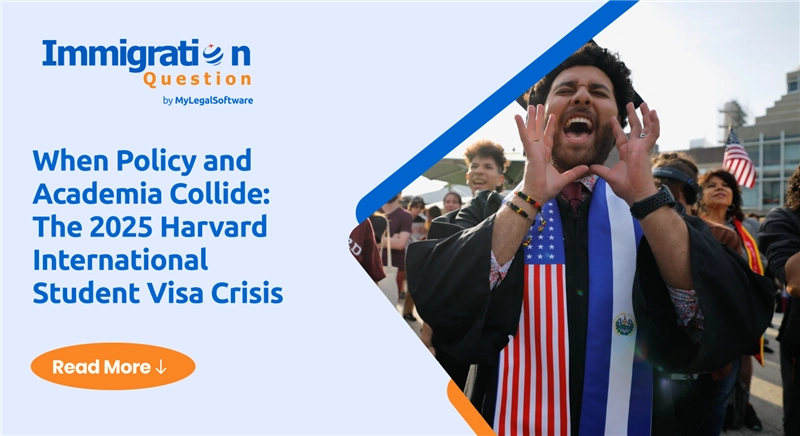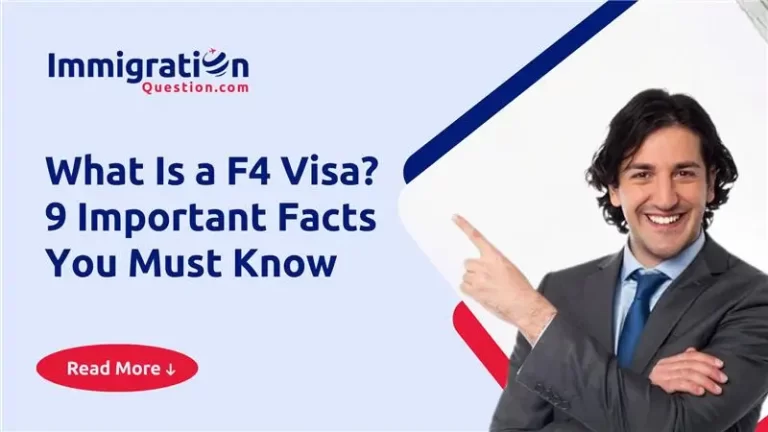In May 2025, a storm erupted at the intersection of immigration policy and academic freedom. Harvard University found itself in a legal and political showdown with the Trump administration after the Department of Homeland Security (DHS) revoked its SEVP certification—the designation that allows institutions to sponsor international students under F-1 and J-1 visas.
The consequences were immediate and dramatic. Nearly 7,000 Harvard international students, roughly a quarter of the entire student population, were suddenly facing the possibility of losing their student visa status.
The revocation sent a wave of panic across campuses and legal communities, raising serious questions about government overreach, academic freedom, and the future of education in the U.S.
What Actually Happened—and Why It Matters?
On May 22, 2025, DHS Secretary Kristi Noem made a surprise announcement: Harvard’s SEVP certification was being revoked, effective immediately. The agency claimed the university failed to provide requested information about its international students and their campus activities.
It also accused Harvard of “encouraging violence, antisemitism, and collaborating with the Chinese Communist Party,”—allegations the university vehemently denied.
Without SEVP certification, Harvard could no longer issue Form I-20, the essential document that international students need to maintain or obtain legal status through F-1 and J-1 visas.
That meant thousands of Harvard international students were suddenly in immigration uncertainty. New admits had no clear path to begin their studies, and current students were being forced to consider transferring schools just to stay in the U.S.
Got immigration questions? Get clear answers fast and connect with licensed immigration attorneys ready to help—only on Immigration Question.
Harvard Fights Back
Harvard didn’t take the decision lightly. Within days, the university filed a federal lawsuit, claiming the government’s action was “a blatant violation of the First Amendment, the Due Process Clause, and the Administrative Procedure Act.” Their legal team argued that the revocation was politically motivated retaliation for not complying with the administration’s ideological expectations.
The university stressed that the damage extended far beyond its reputation. Thousands of students and scholars would be personally affected, with their academic and immigration futures hanging on a thread. The school’s leadership insisted the action was a direct attack on academic freedom and the autonomy of higher education institutions.
A federal judge in Boston seemed to agree—at least temporarily. The court issued a temporary restraining order to pause the revocation, ensuring that Harvard international students wouldn’t immediately lose their status while the case moved forward. The judge emphasized the “irreparable harm” the policy shift could cause if allowed to take immediate effect.
The Broader Implications: Academic Freedom and Government Power
This legal clash has stirred up bigger conversations about the balance between national security and academic freedom. Yes, the Department of Homeland Security does have the authority to grant or revoke SEVP certification.
But if that power is used to suppress speech or retaliate against institutions for their perceived ideologies, it becomes a serious constitutional issue.
Harvard’s legal team is leaning hard on that point. Their argument: the Trump administration wasn’t acting out of a genuine concern for immigration compliance—it was trying to pressure the university into aligning with its political agenda. If the courts agree, it could mark a major win for universities and international students across the country.
But if the government’s actions are upheld, the implications could be far-reaching. It might give future administrations more freedom to exert control over academic institutions through visa and immigration channels. That’s a scary prospect for anyone who values independent thought and open inquiry in American education.
What It Means for Students on Ground
For Harvard international students caught in the middle, the situation has been deeply unsettling. Many will have to scramble to understand their legal status, explore transfer options, or even consider leaving the country.
Some graduating students weren’t sure whether they’d be allowed to attend commencement or receive their diplomas on time.
Harvard’s International Office has stepped in to support affected students, offering legal guidance, frequent updates, and reassurance. The administration has remained vocal in its defense of global education, condemning what it sees as politically motivated interference from Washington.
The Government’s Position: National Security and Transparency
The Trump administration hasn’t backed down. President Trump and Secretary Noem have maintained that the revocation was a necessary move to protect national security. According to them, Harvard failed to meet transparency requirements by not submitting detailed data about international students to the DHS.
However, immigration attorneys point out that universities already comply with legal obligations to share student visa data through federal systems. Critics argue there’s little evidence Harvard broke any rules—and plenty of reason to believe this was more about politics than policy.
Why Facts Matter Now More Than Ever
One major takeaway from this showdown? The importance of fact-based, responsible reporting. In times of political and legal turbulence, misinformation can quickly spiral into fear and confusion—especially when it comes to student visa issues and SEVP certification.
Advocates and journalists are urging the public to rely on trusted sources and immigration experts. The stakes are simply too high to let political narratives cloud objective truth.
Final Thoughts: How Immigration Question Can Help
This crisis is a sobering reminder of how fragile immigration status can be—even for students at the most prestigious institutions in the world. When government policy shifts unexpectedly, lives can be thrown into chaos overnight.
That’s why knowing your rights and having access to trusted legal guidance is essential. If you’re a student, scholar, or family member with questions about SEVP certification, student visa issues, or your immigration options, Immigration Question is here for you. Our network of licensed immigration attorneys can help you make sense of complex policies, prepare for emergencies, and advocate for your future.
No matter where you are in the world, you deserve clear answers and legal support. Don’t wait for a crisis, visit Immigration Question today to ask your questions and get answers within hours. Get the help you need to move forward with confidence. You can also connect with experienced immigration attorneys who may be willing to offer free consultations.
Frequently Asked Questions
1. What happens if a university loses its SEVP certification?
If a school loses SEVP certification, it can no longer issue Form I-20, meaning international students may lose their legal visa status unless they transfer or change programs.
2. Can the U.S. government revoke SEVP certification without notice?
While DHS has the authority to revoke certification, abrupt revocations, especially without due process, can be legally challenged for violating administrative or constitutional rights.
3. What is Form I-20 and why is it so important?
Form I-20 is the document issued by SEVP-certified schools that allows students to apply for and maintain F-1 visa status. Without it, students can’t legally study or remain in the U.S. under that visa category.
4. Can I transfer to another school if my university loses SEVP certification?
Yes, but you must act quickly to maintain your status. Transferring schools involves coordination between both institutions and approval through SEVIS. Getting legal help from an experienced Immigration Question attorney can make the process seamless for you.
5. What should I do if my visa status is in jeopardy due to policy changes?
Stay informed, gather all documentation, and consult a qualified immigration attorney as soon as possible. Immigration Question offers trusted legal support tailored to your unique











